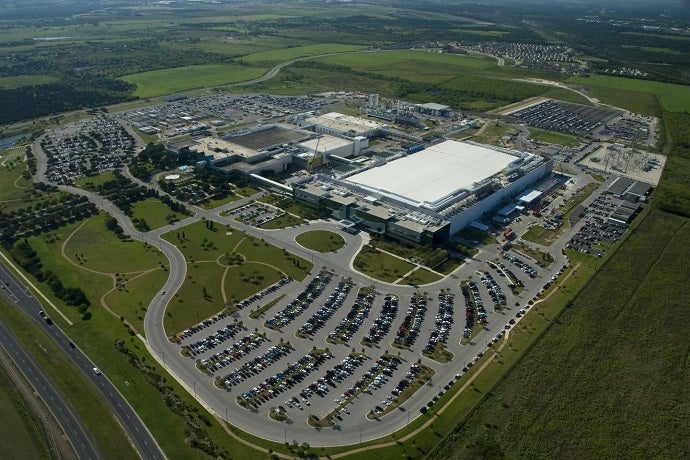
Storm-hit semiconductor factories in Texas are returning to normal levels of production, according to Samsung, an announcement which may ease some of the current pressure on global chip supplies.
“Our plant in Austin, Texas, has entered the normal stage of production from last week,” a Samsung spokesperson told reporters in Seoul on Tuesday. “We are currently ramping up operations to reach the level we had before the shutdown.”

Access deeper industry intelligence
Experience unmatched clarity with a single platform that combines unique data, AI, and human expertise.
Pressed on when production would reach pre-shutdown levels the company declined to comment, suggesting that output may remain below normal for some time.
Samsung’s Austin, Texas plant is known as Line S2. It can produce products with gate sizes in the range 14 to 65 nanometres.
Line S2 was forced to shut down after severe storms in mid-February caused water and power outages. Utilities were restored shortly afterwards but some weeks of inspection and testing were required before production could resume.
GlobalData Technology analysts noted in October that Samsung’s strong overall performance through the coronavirus pandemic was sustained in large part by its semiconductor manufacturing business, which helped it beat market expectations. The analysts noted that Samsung will manufacture new Qualcomm-designed Snapdragon 4 chipsets which will bring 5G capabilities to affordable phone handsets in 2021. The analysts wrote:

US Tariffs are shifting - will you react or anticipate?
Don’t let policy changes catch you off guard. Stay proactive with real-time data and expert analysis.
By GlobalData“Affordable 5G phones are a key for mainstream 5G adoption, and a manufacturing partnership will be beneficial for Samsung. This will give Samsung early access to Qualcomm’s chipsets as it ramps up its affordable 5G phone lineup for 2021.”
In the company’s Q4 2020 earnings call on 28 January, Ben Suh – Executive Vice President, Head of Investor Relations – said that Samsung intends to expand production of 5 nanometre system-on-chip (SoC) and 8 nanometre high-performance computing chips. Suh also said that orders for these classes of silicon are “continuously rising”, according to the call transcript held by GlobalData’s Tech Intelligence Centre. Silicon with such small gate sizes has to be produced using demanding extreme ultraviolet (EUV) photolithography techniques: Suh added that foundry capex was “focused” on this area.
Globally, semiconductor supply is tight, with automakers especially hard hit. Some 30% of the cost of modern vehicles is accounted for by electronics, and semiconductor manufacturers switched capacity away from automotive chips during 2020 in favour of the booming IT sector. Now that automakers’ sales have recovered, there is a shortage of chips with which to produce new vehicles.







